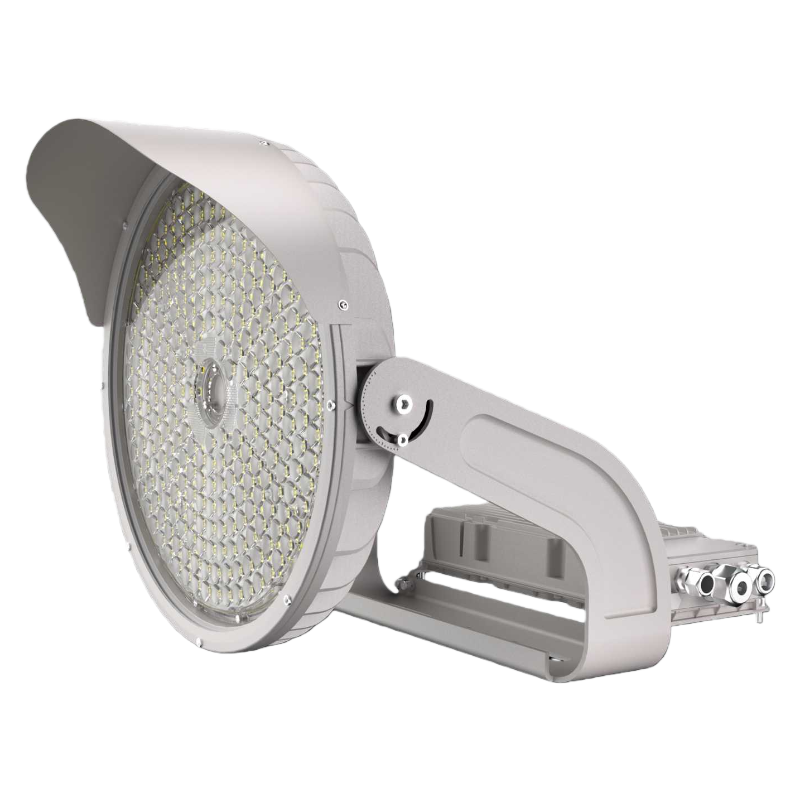ZC Lighting's insights and solutions in the new era of foreign trade
In the wave of globalization, cross-border trade has become one of the core driving forces for corporate growth. For the lighting industry, the rapid iteration of technology and demand brings both opportunities and hidden challenges. As a lighting brand deeply involved in global foreign trade, ZC Lighting has always been at the forefront of the industry, providing efficient and sustainable lighting solutions to global customers with innovative technology and strategic thinking. This article will explore the future trends of lighting foreign trade, ways to solve pain points, and how ZC Lighting reshapes the industry value chain.
Global lighting market trends: insights and opportunities
Green energy revolution catalyzes demand upgrades
According to the International Energy Agency (IEA), by 2030, the global LED lighting penetration rate is expected to exceed 90%. The advancement of carbon neutrality goals has accelerated the transformation of traditional lighting to energy-saving products. ZC Lighting has helped customers in the Middle East, Africa, and other regions reduce energy costs by more than 30% through self-developed solar-integrated street lights, low-power smart lamps, and other products.
Intelligence and scenario customization become a competitive high ground
From smart cities to smart homes, lighting systems transform from "functional parts" to "data nodes". The Z-Link IoT platform we developed supports seamless connection between lighting equipment and building management systems and has been successfully applied to multiple Industrial 4.0 projects in Europe.
Infrastructure dividends in emerging markets
The urbanization rate in Southeast Asia, Latin America, and other regions has increased by an average of 2.3% per year, giving rise to demand for projects such as road lighting and commercial complexes. ZC Lighting has achieved a 48-hour technical response through a localized service center, becoming a core supplier of Indonesia's Jakarta Smart City project.
Pain points and solutions for foreign trade practice
Compliance barriers: Crossing the maze of standards
Challenges: EU ERP directives, US FCC certification and other regulations are frequently updated, and the cost of single product certification has increased by 25%.
Solution: ZC Lighting has established a global compliance database and cooperated with third-party laboratories to provide "one-time testing, multi-country certification" services, shortening customers' listing cycle by 60%.
Supply chain resilience reconstruction
Challenges: Geopolitics has led to fluctuations in raw materials, and the stability of sea transportation timeliness has decreased by 40%.
Innovative practices:
Establish bonded warehouses in Vietnam and Mexico to achieve regional radiation delivery
Promote modular design, and common parts cover 85% of product lines
Blockchain traceability system improves supplier collaboration efficiency
Brand trust building under cultural gaps
Through the "Glocalization" strategy, an industrial design center was established in Germany, and local lighting engineers were hired; a gold decorative lamp series was launched for Middle Eastern customers, integrating Islamic geometric aesthetics with modern optoelectronic technology, and the annual repurchase rate increased to 78%.
Pain points and solutions for foreign trade practice
1. Compliance barriers: Crossing the maze of standards
Challenges: EU ERP directives, US FCC certification and other regulations are frequently updated, and the cost of single product certification has increased by 25%.
Solution: ZC Lighting has established a global compliance database and cooperated with third-party laboratories to provide "one-time testing, multi-country certification" services, shortening customers' listing cycle by 60%.
2. Rebuilding supply chain resilience
Challenges: Geopolitics has led to fluctuations in raw materials, and the stability of sea transportation timeliness has decreased by 40%.
Innovative practices:
Establish bonded warehouses in Vietnam and Mexico to achieve regional radiation delivery
Promote modular design, and common parts cover 85% of product lines
Blockchain traceability system improves supplier collaboration efficiency
3. Brand trust building under cultural gaps
Through the "Glocalization" strategy, an industrial design center was established in Germany, and local lighting engineers were hired; a gold decorative lamp series was launched for Middle Eastern customers, integrating Islamic geometric aesthetics with modern optoelectronic technology, and the annual repurchase rate increased to 78%.
ZC Lighting's value proposition: a partnership that goes beyond transactions
1. Full-cycle service enabled by technology
Provide light environment simulation software (ZC Designer), customers can generate lighting solutions and energy consumption reports online
Establish the industry's first cross-border after-sales cloud platform to support remote fault diagnosis
2. Sustainable business ecosystem construction
Introduce the "Carbon Credits Program" to recycle old lamps to offset the amount of new orders
Carry out the "Bright Village" project in Bangladesh, donate solar street lights, and cultivate local agents
3. Digital transformation drives value creation
VR showrooms achieve immersive product selection, and the procurement decision cycle is shortened to 72 hours
Big data analysis predicts regional demand fluctuations and warns of inventory adjustments 3 months in advance.
Conclusion: Redefining the boundaries of lighting foreign trade
When traditional foreign trade fell into the price red ocean, ZC Lighting chose to break through with technical depth and humanistic warmth. We are not only a provider of lighting products, but also a co-creator of light environment solutions. From the dazzling skyline of the Burj Khalifa in Dubai to the sustainable lighting network of the Amazon rainforest community, ZC Lighting is proving that true globalization is to make every beam of light precisely meet local needs while delivering universal values.











